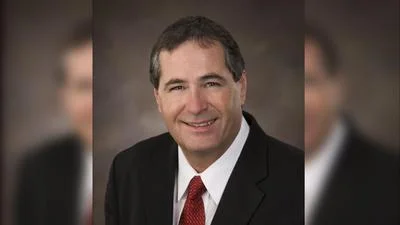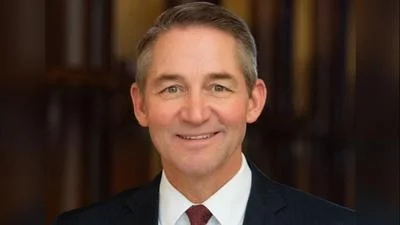Senator Kevin Cramer | Senator Kevin Cramer Official website
Senator Kevin Cramer | Senator Kevin Cramer Official website
WASHINGTON – U.S. Senator Kevin Cramer (R-ND), Ranking Member of the Environment and Public Works (EPW) Subcommittee on Transportation and Infrastructure, held a hearing on the authorities available to the U.S. Army Corps of Engineers (Corps) for addressing water management issues.
He invited and introduced two witnesses from North Dakota, Ms. Jennifer Verleger, Chair of the Western States Water Council and North Dakota assistant attorney general, and Dr. Andrea Travnicek, Director of the North Dakota Department of Water Resources. Both are knowledgeable about water resource management and Corps operations in the state.
https://www.cramer.senate.gov/imo/media/image/ND%20EPW%20Witnesses%202.jpg
OPENING STATEMENT
***Click here to download video. Click here for audio.***
In his opening remarks, Senator Cramer covered cooperative federalism and states’ rights regarding water management, wins in the 2020 and 2022 Water Resources and Development Act (WRDA), including the Western Water Cooperative Committee, and the Corps’ management of the Snake Creek Embankment. A transcript may be found here.
WITNESS QUESTIONING
***Click here to download video. Click here for audio.***
Senator Cramer first discussed the Corps’ onerous proposed Water Supply Rule, which, before its withdrawal in 2020, threatened to significantly limit states’ abilities to develop and administer their water resources.
“Dig down on the legal objections to the [Water] Supply Rule in the first place, because history is instructive,” said Senator Cramer. “[Could you] give a little legal analysis as to why it was so objectionable?”
“By the Corps trying to usurp control over all of that water, that takes away the states’ ability to allocate the water in accordance with their state laws. Every state allocates their laws or their water somewhat differently, but generally, we all use the prior appropriation system in the West,” responded Ms. Verleger. “There are already mechanisms set up in place to allocate water between users, especially in times of shortage, and when the Corps comes in and tries to take control over the whole sink, that takes away the states’ ability to do any sort of regulation and that is contrary to state law and the Constitution.”
Senator Cramer asked about the role and future impacts of the Western Water Cooperative Committee, which he and his colleagues established in the 2022 WRDA.
“The Corps wasn't crazy about [the creation of the Western Water Cooperative Committee]. Their sense was, ‘we can work with attorney generals, and we can work with governors in individual states.’ Tell me how you see the new committee working and why it might work better in getting better cooperation with the Corps,” said Senator Cramer.
“There's one person appointed by the governor and one person appointed by the Attorney General from each of the states, and those are supposed to be people who actually have technical expertise. These aren't meant to be political appointments, but people who are actually going to be able to dig down into the weeds with the Corps of Engineers, staffers, and discuss the problems and try to find solutions,” said Ms. Verleger. “They are required to report to Congress every year after we have the meeting. I expect it to be focused a lot on water supply issues, but I think we can broaden out from that and see where there's conflict.”
He then questioned Dr. Travnicek about the Snake Creek Embankment, a project with which she has been highly engaged. She previously contacted Senator Cramer and North Dakota Governor Doug Burgum for access to economic data included in the Corps' draft Environmental Assessment (EA).
“Thanks for your work on the Snake Creek Embankment,” said Senator Cramer. “[Could you] dig down on what an EA should include in terms of information?”
“We had requested seeing the data associated with the economic analysis and what that looked like,” responded Dr. Travnicek. “My team was able to dive in working with Garrison Diversion Conservancy District as well. We feel if there was an opportunity to make sure we're looking at this from a multiple purpose perspective, versus just [the Corps’] dam safety, loss of life perspective, we would be above that 1.0 needed for the benefit-cost ratio to move forward with a structural fix versus an operational fix.”
Finally, Senator Cramer reiterated the importance of preserving cooperative federalism as it relates to water management in western states and ended on a note of optimism, highlighting the role of the Western Water Cooperative Committee moving forward.
“This is where hope lies in my view: the Western Water Cooperative Committee,” said Senator Cramer. “The West together, while we aren't identical, we have similar concerns. That's why we created this committee that will answer to the Court and then to Congress. We will be able to be kept up-to-date on how they're responding, so we can hopefully make it crystal clear they're either meeting or not meeting [needs].”
He posed a question to the two witnesses regarding whether they are hopeful about the Corps leadership. They confirmed they are.
Original source can be found here.






 Alerts Sign-up
Alerts Sign-up